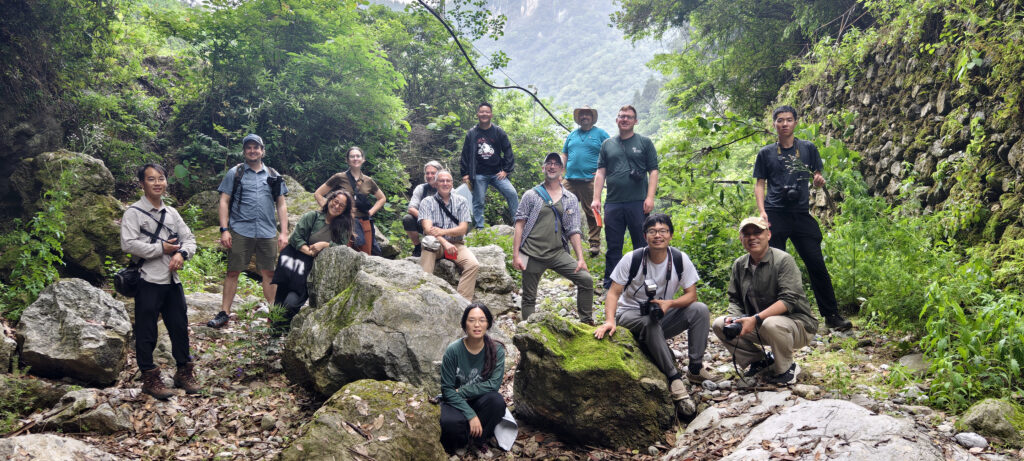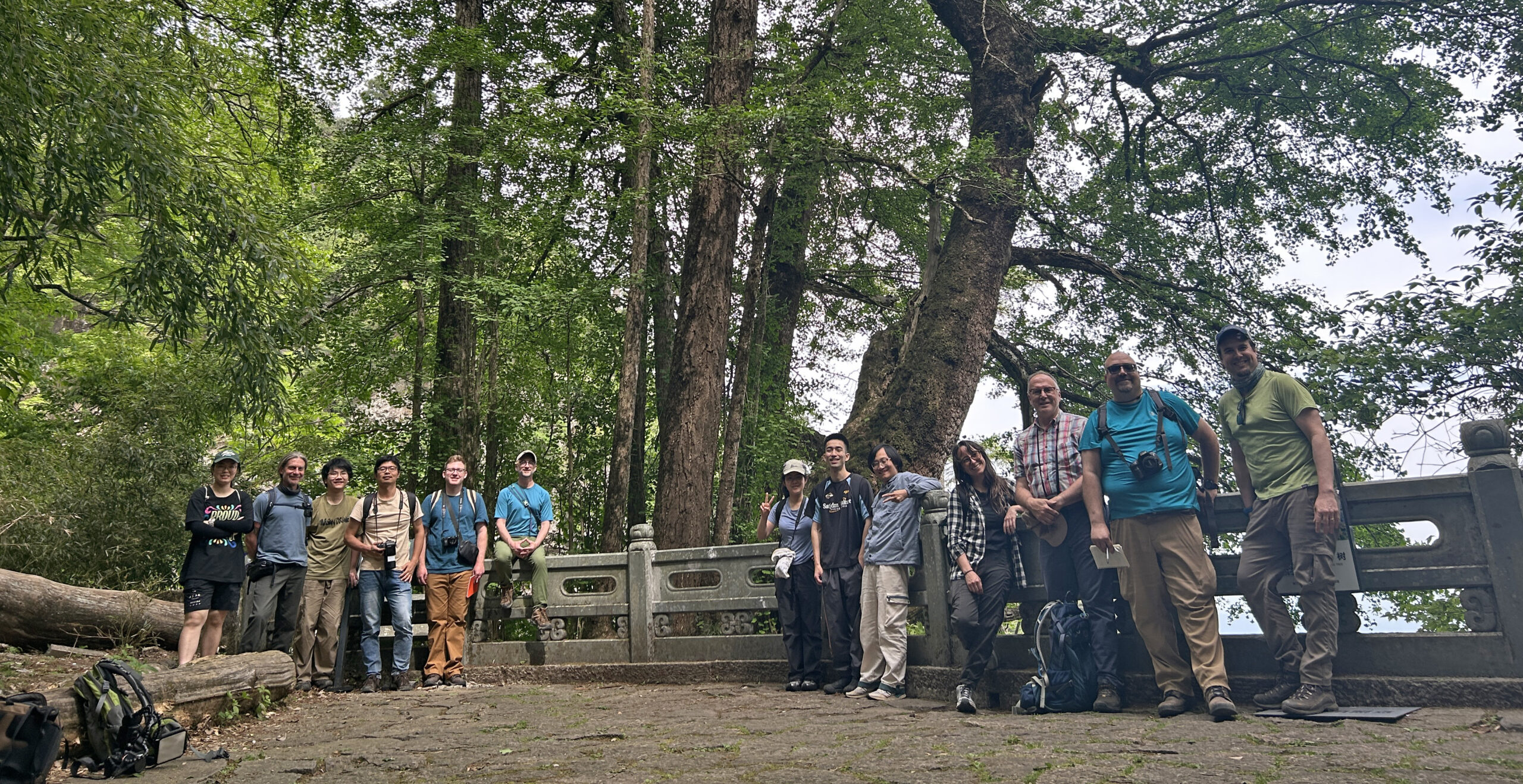NACPEC sets stage for increased global engagement in preserving biodiversity
From May 7–24, staff from the Arnold Arboretum of Harvard University participated in a novel conference and spring field expedition for the North America-China Plant Exploration Consortium (NACPEC) in China to strengthen global partnerships for conservation. With generous support from the Harvard China Fund, the assembly brought together leading botanical institutions from both continents to deepen scientific exchange and cooperation in documenting and preserving temperate plant diversity.
Founded in 1991, NACPEC is a long-standing partnership among North American and Chinese botanical institutions dedicated to the exploration and conservation of East Asian flora—Earth’s hotspot for temperate biodiversity. China’s forests are home to thousands of plant species, many of which are threatened due to habitat destruction and global change. NACPEC shares the Arnold Arboretum’s historical commitment to global plant conservation, scientific research, and public education. At the center lies a shared value for collaborative field work and ex-situ conservation of imperiled plants.

The endeavor marked NACPEC’s first return to China since 2018. Participants included representatives from five North American gardens—University of British Columbia Botanic Garden, Longwood Gardens, Holden Forests & Gardens, the Morton Arboretum, and the Arnold Arboretum—alongside Chinese partners from the National Botanic Garden Beijing, Zhejiang University, and the Kunming Institute of Botany. Conference programming included visits to major institutions including the Shanghai Botanic Garden, the National Botanical Garden Beijing, and Hangzhou Botanic Garden, as well as Zhejiang University’s College of Life Sciences.
In the field, participants explored floristically rich regions such as Tianmu Shan in Zhejiang, Shennongjia Forest District in Hubei, and Taibai Shan in Shaanxi’s Qinling Mountains. The expedition launched a new model for plant collection focused on floristic surveying, documentation, and scouting. These efforts laid the groundwork for future seed collections by NACPEC’s Chinese partners and provided invaluable insights into plant ecology and conservation needs. They also fostered mentorship and knowledge exchange among seasoned explorers and first-time participants, reinforcing NACPEC’s intergenerational and cross-cultural ethos.
A key innovation of this expedition was the implementation of modernized documentation standards pioneered by the Arnold Arboretum. Serving as the trip’s archivist, Arboretum Collections Fellow Madeline Schill introduced new archival methods for collectors to ensure comprehensive and accessible data. These standards will not only preserve the legacy of this expedition but also serve as a model for future efforts of this kind worldwide.
Approaching its 35th year, NACPEC remains the longest-running consortium of its kind in the botanical garden community. Its enduring success is rooted in a shared vision that transcends institutional and national boundaries. As NACPEC embarks on strategic planning for the next decade, the 2025 expedition stands as a pivotal moment—rekindling partnerships, inspiring future collaborations, and reaffirming the vital role of botanic gardens in studying and safeguarding global biodiversity.
